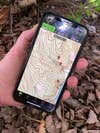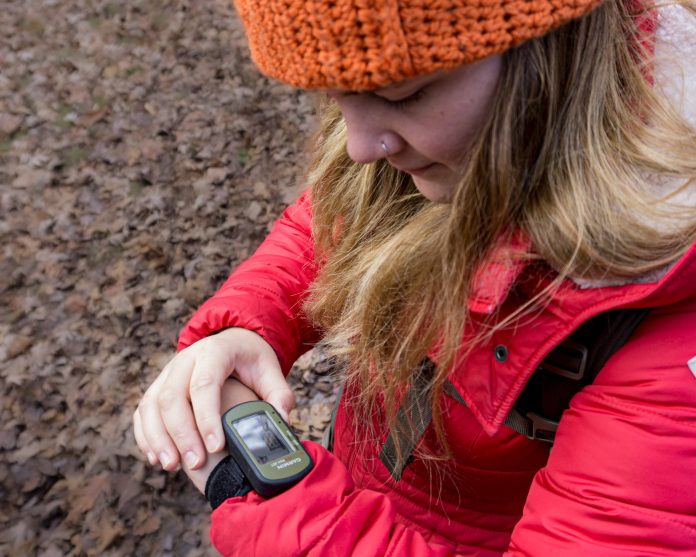I recently read of a hunter overdue home from a squirrel hunting trip. He had slipped and fallen and was suspended upside down by his leg, which was caught in rough terrain. Fortunately, he had a Global Positioning System (GPS) and satellite messaging device that allowed him to contact emergency dispatch. Search and Rescue were able to pinpoint his location and rescue him from his life-threatening situation. In a world where technology continually reshapes our lives, GPS stands out for its profound impact on navigation and exploration.
This remarkable tool, once reserved for wealthy mountaineers and rescuers, can now be a reality in our pockets and backpacks. I’ve witnessed firsthand how GPS technology has revolutionized outdoor activities, from hiking in the remote wilderness to finding your tree stand in the dark.
GPS is more than just a tool. It can guide us through unfamiliar areas, ensuring safety and enhancing our outdoor experiences. Its story is a fascinating blend of science, technology, and human ingenuity. In this article, we’ll answer what is GPS is, how it works, its accuracy, and the types of GPS devices best suited for outdoorsmen.




There is no shortage of options for GPS devices available to hunters, hikers, and others who enjoy the outdoors. Photos by Jennifer Caudill
What Is GPS?
The Global Positioning System is a network of satellites orbiting Earth, providing location and time information to GPS receivers anywhere on the planet, regardless of weather conditions. Initially developed by the U.S. Department of Defense, this system is now widely accessible to the public. GPS sends signals from satellites to a GPS receiver, which calculates the user’s exact location by measuring the distance from multiple satellites. This technology has become integral to various aspects of modern life, including navigation, mapping, timing, and even some financial transactions. Its application in outdoor activities like hiking, camping, hunting, and fishing has made exploration safer and more accessible. GPS devices range from stand-alone handheld units and sophisticated systems engineering systems down to very effective apps on a smartphone. They offer real-time location data and navigational assistance to users worldwide.
Read Next: How to Read a Compass
What Does GPS Stand For
GPS stands for Global Positioning System. It’s a satellite-based navigation system that provides users with their precise location and time anywhere on Earth. The United States government maintains the system, and is freely accessible to anyone with a GPS receiver. Other governments operate equally robust and usable systems. Many receivers sometimes access their satellites as well.
How Does GPS Work?
GPS operates through a network of about 30 satellites orbiting the Earth. These satellites, positioned in precise locations, continuously transmit signals to the Earth. A GPS receiver, such as those found in smartphones or specialized GPS devices, picks up these signals. To determine a user’s exact location, the receiver calculates the time it takes for the signals from at least four satellites to reach it.
This calculation involves a concept known as trilateration. Imagine you’re standing somewhere on Earth with a GPS device. The device receives a signal from a satellite, indicating you’re a certain distance from that satellite. With this information alone, your location is still uncertain: You could be anywhere on a large sphere around the satellite. As your device receives signals from more satellites, these spheres intersect, narrowing down your location. The more satellites your device can “see,” the more accurate your location will be.
How Accurate Is GPS?
GPS accuracy can vary depending on several factors, including the type of receiver, atmospheric conditions, and physical obstructions like buildings or trees. Generally, for civilian use, GPS accuracy falls within a 5- to 10-meter range. This level of precision is typically sufficient for most outdoor activities, such as hiking, geocaching, or fishing.
Advanced GPS systems, which use additional ground-based signals and sophisticated processing techniques, can achieve even greater accuracy. Differential GPS (DGPS), for example, can improve accuracy to within about 1 meter. This enhanced precision is crucial in specific professional and scientific applications, such as land surveying or earthquake research.
It’s important to note that GPS signals can be affected by atmospheric conditions like ionospheric delays and obstructions that block the line of sight to satellites. GPS accuracy may decrease in dense forests or urban areas with tall buildings. However, ongoing improvements in GPS technology and the development of additional satellite systems, like Europe’s Galileo and Russia’s GLONASS, continually enhance global positioning data’s reliability and accuracy.
A vital misconception about GPS signals is that you will get a more accurate position assessment if you have a satellite directly overhead. Accuracy is dependent on two things:
- Connecting with at least four satellites, as mentioned above.
- Those satellites are close to the horizon rather than directly overhead. The closer they are to the horizon, the more accurate trilateration can occur.
What Kind of GPS Devices Should Outdoorsmen Use?
For outdoorsmen, choosing a suitable GPS device depends on the nature of your activities and specific needs. In recent years, I have trained numerous first responders, seasoned outdoors folks, and casual nature lovers to utilize apps such as Caltopo or Gaia on their smartphones. They are incredibly user-friendly because those with smartphones already know how to use them. It is just a familiarization process with new menus and functions.
The primary concern here is that they are not nearly as rugged as those that came before them. It would be best if you also considered battery life and always carry battery backup and a cord to charge your device. I typically have a separate battery and cord in my pack that is only used in emergencies and nothing else. That way, I ensure I have backup when needed. Also, remember that maps and data on these apps utilize cell phone technology, but the GPS locator does not. You can download your area maps before you need them so they are on your phone. The GPS chip in your phone is just as capable as those in the handheld units and does not need cell phone towers to locate your position.
Stand-alone handheld GPS units are popular among hikers, hunters, and campers. These devices are more rugged and weather-resistant than their smartphone counterparts. Brands like Garmin, Magellan, and Suunto are known for their reliable handheld GPS devices.
For those who enjoy water-based activities like fishing or kayaking, GPS devices designed for marine use, which often include nautical charts and sonar capabilities, are ideal. Anglers, in particular, benefit from GPS fish finder combos that help locate prime fishing spots.
For backcountry explorers and those venturing into extreme environments, a GPS device with emergency communication features, like satellite messaging or SOS functions, can be a lifesaver. These are also affordable to the everyday “common man” user. These devices offer an extra layer of safety, ensuring help is reachable even in the most isolated locations.
Final Thoughts on What Is GPS?
In conclusion, the choice of a GPS device should be guided by the specific requirements of your outdoor adventure, balancing factors like durability, accuracy, and additional features to enhance your safety and enjoyment in the wilderness.
Continue Reading to Learn More about GPS
Check out our reviews of the best GPS devices on the market:








